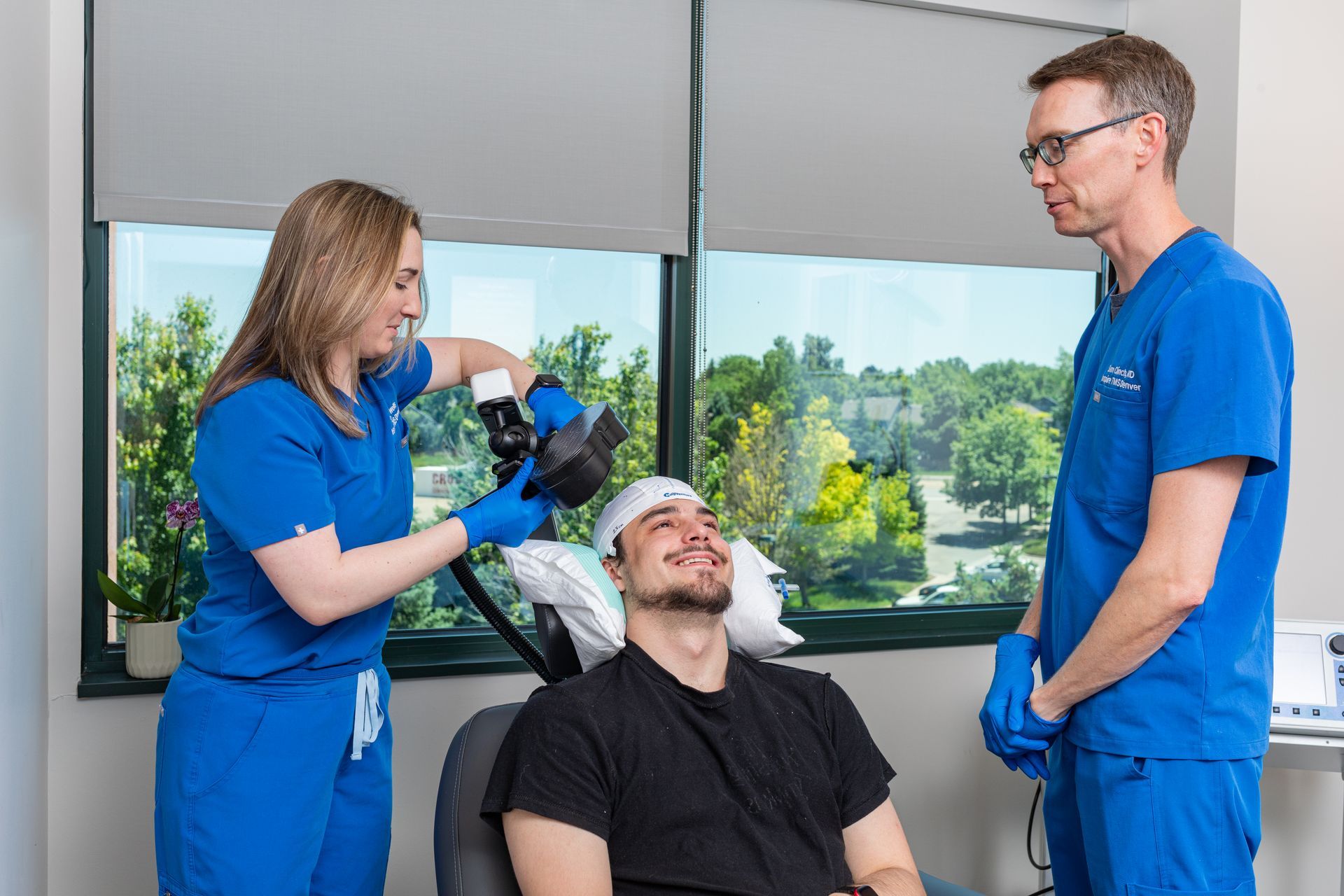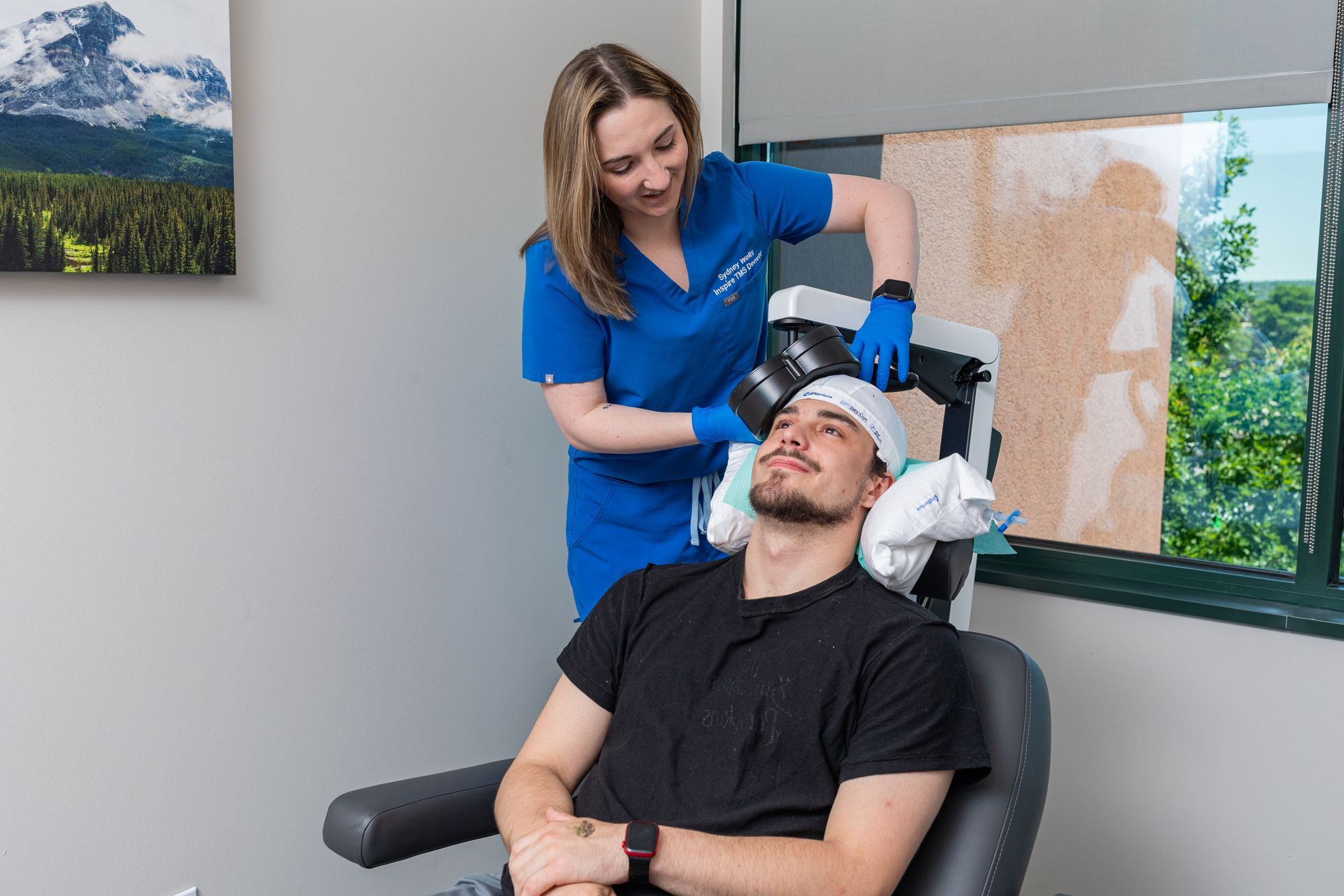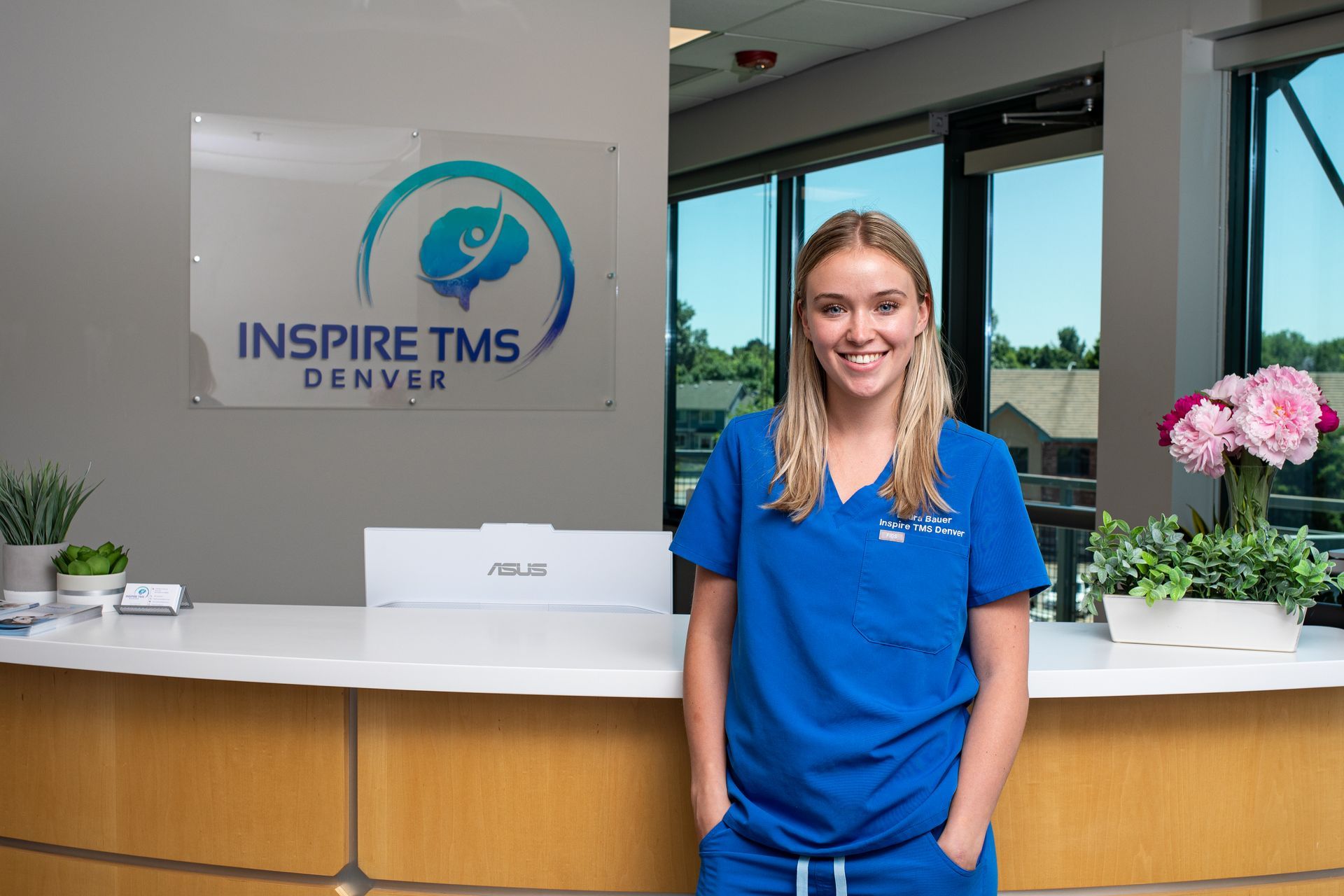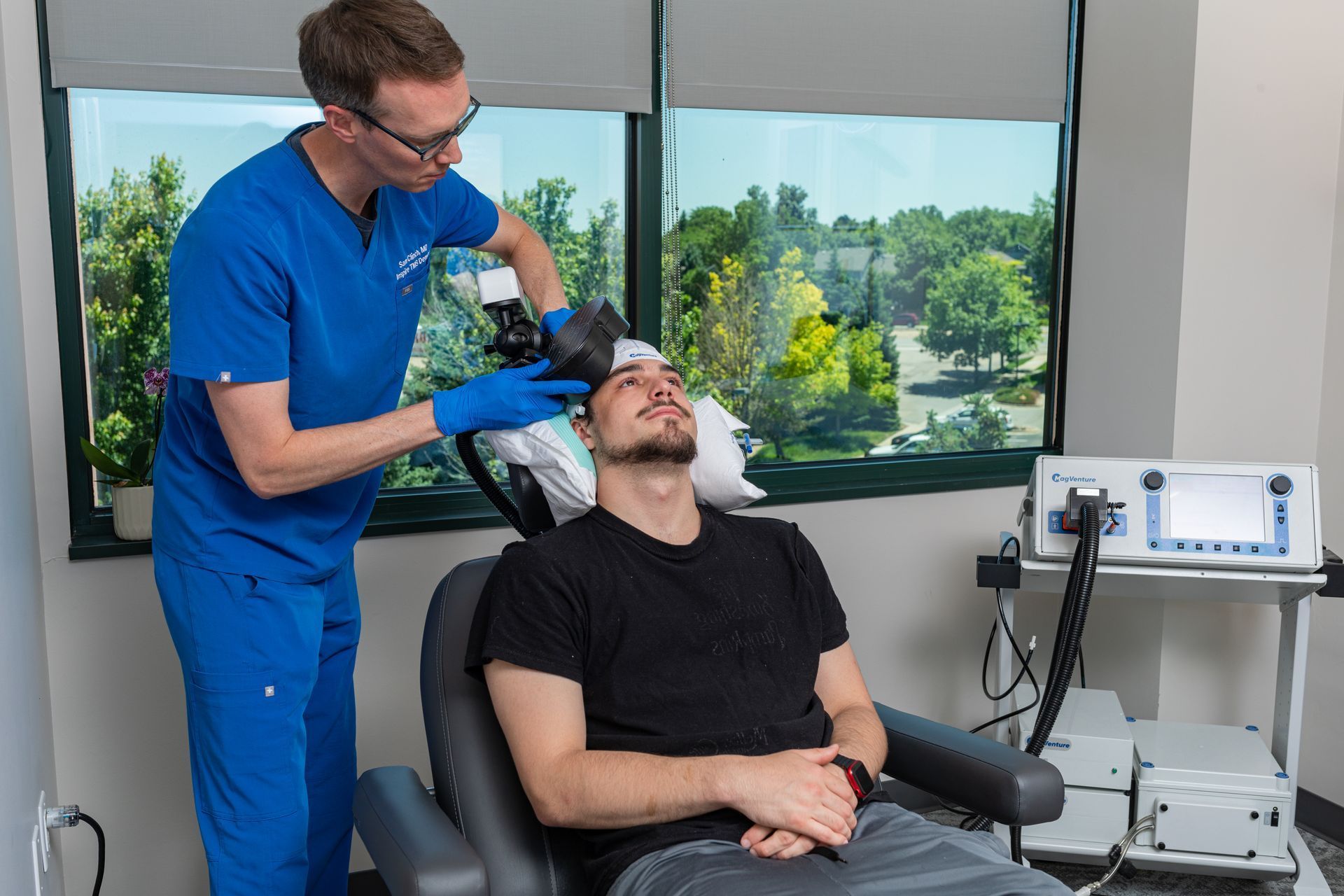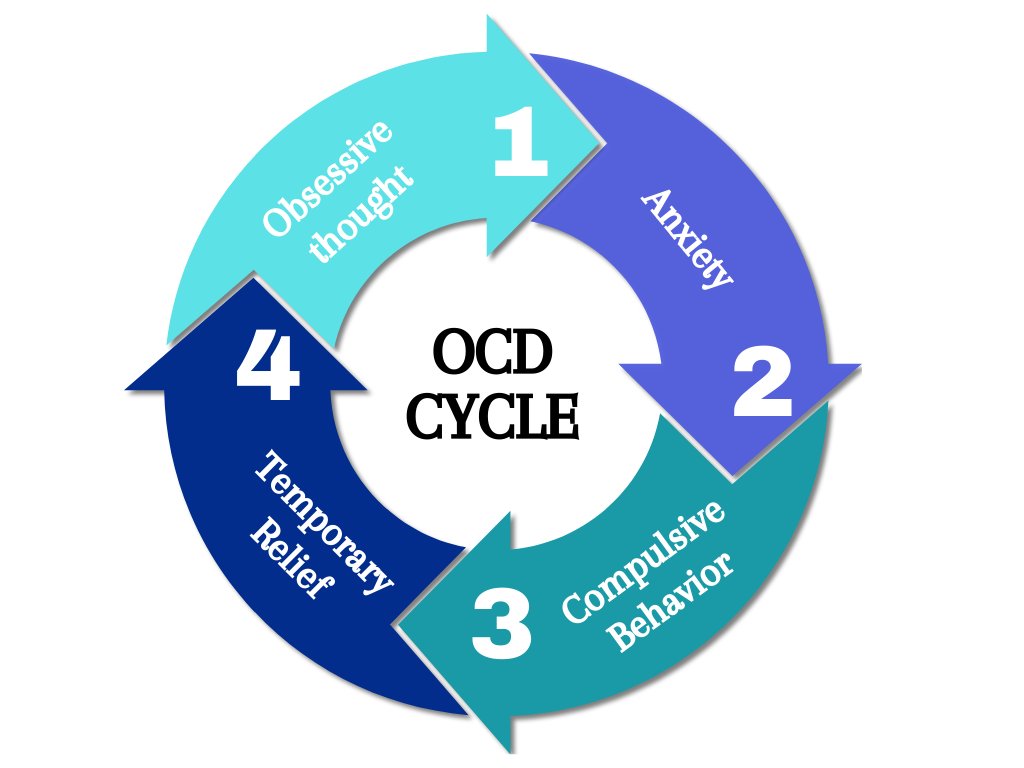TMS for OCD
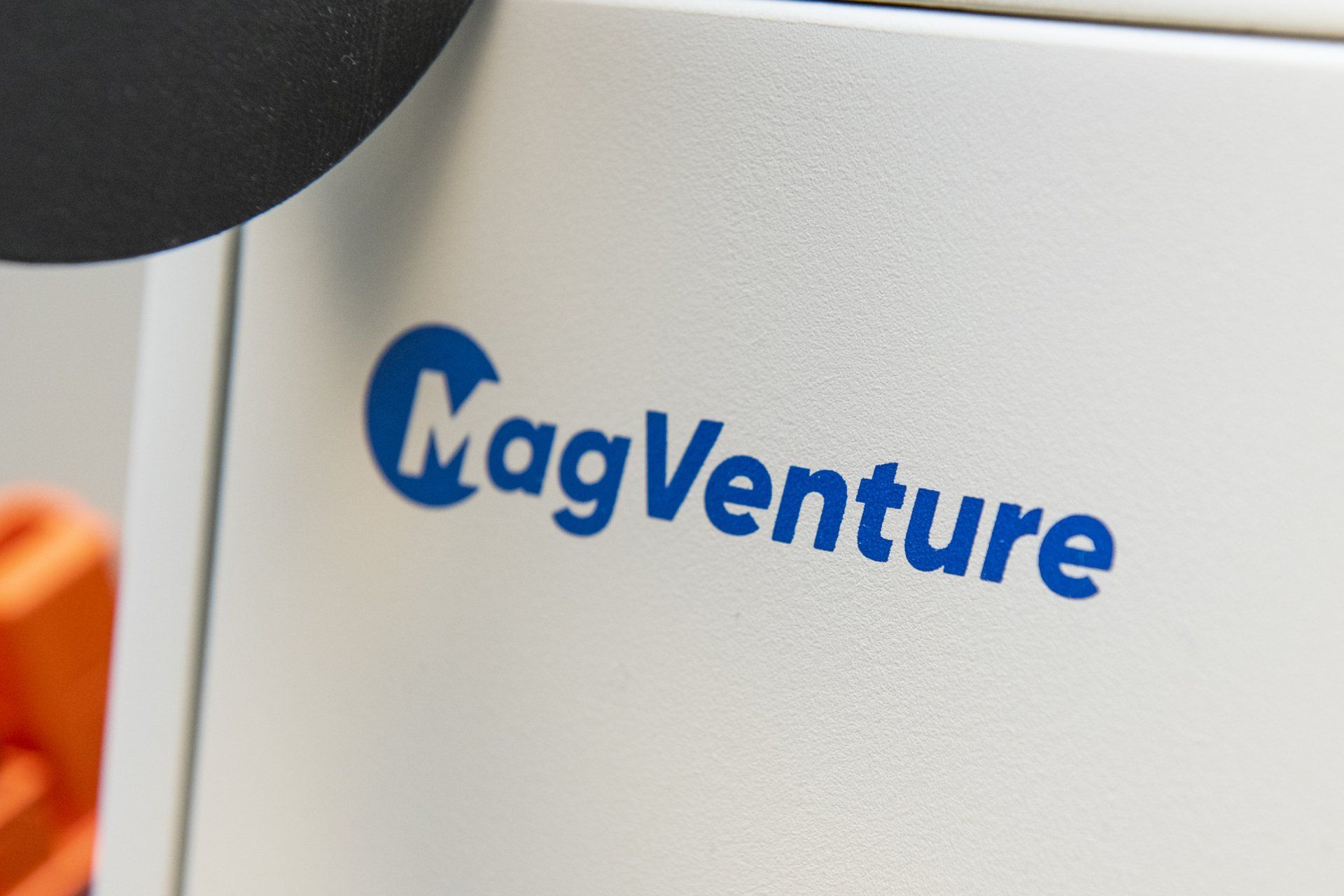
Obsessive-Compulsive Behavior (OCD) is a debilitating anxiety disorder characterized by a vicious cycle of irrational thoughts and fears (obsessions) that lead to irresistible, repetitive behaviors (compulsions) that are perceived to temporarily mitigate the associated fear. 40-60% of OCD patients do not improve with traditional treatment (medication or behavioral therapy).
Fortunately, as of 2018, TMS is now an option for OCD patients. In fact, TMS is the only new FDA-approved treatment for OCD in over 10 years. In the past, TMS has mostly been used to treat MDD (Major Depressive Disorder), but also has clinical applications for several other disorders including GAD (Generalized Anxiety Disorder), PTSD (Post Traumatic Stress Disorder), and Bipolar Disorder - although only FDA approved treating MDD and now OCD. It is an outpatient, noninvasive procedure, that involves an electromagnetic coil being placed on the patient’s head that produces magnetic fields. These magnetic pulses travel unimpeded across the skull to stimulate nerve cells on the surface of the brain and alter neuronal activity in much deeper structures and networks.
TMS for OCD utilizes deep TMS (dTMS). dTMs differs from standard TMS (used for depression) because it reaches deeper into the cortex and targets the brain network associated with OCD, the cortico-striatal-thalamic-cortical pathway (CSTC). Although dTMS stimulates deeper into the cortex than rTMS, it is equally safe and well-tolerated.
TMS for OCD also differs from that for depression because it requires brief “provocation” where the patient discusses their OCD symptoms for a few minutes prior to treatment to activate the OCD network and then continues to think about them during each treatment. A standard course of treatment typically consists of 36 total treatments over a 9 week period. A treatment itself lasts approximately 18 minutes.

Here at
Inspire TMS Denver , we are excited to announce that we have added MagVenture’s Cool D-B80 OCD coil and are now offering TMS for OCD. Since TMS for OCD was only recently FDA-approved, Cigna is the only insurer here in CO currently covering TMS for OCD, but we also offer self-pay rates. If you are interested in OCD treatment or have any questions, please reach out.
We would love to chat with you!
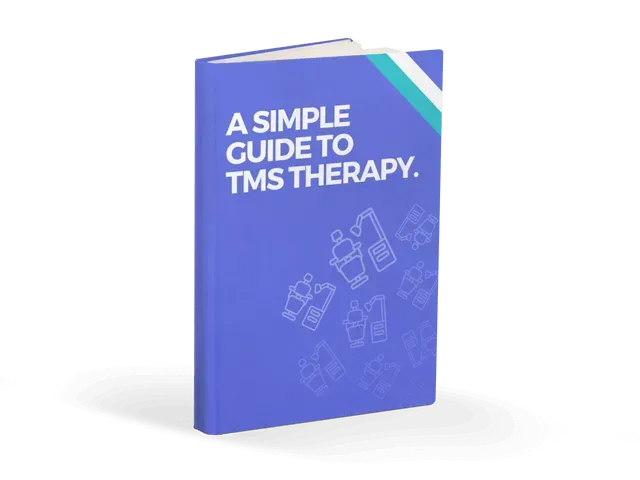
Every Question Answered
Want to know more about TMS? Check out this in-depth guide to TMS therapy with transparent and easy to understand explanations about TMS processes, protocols, and treated conditions.
Latest Posts

